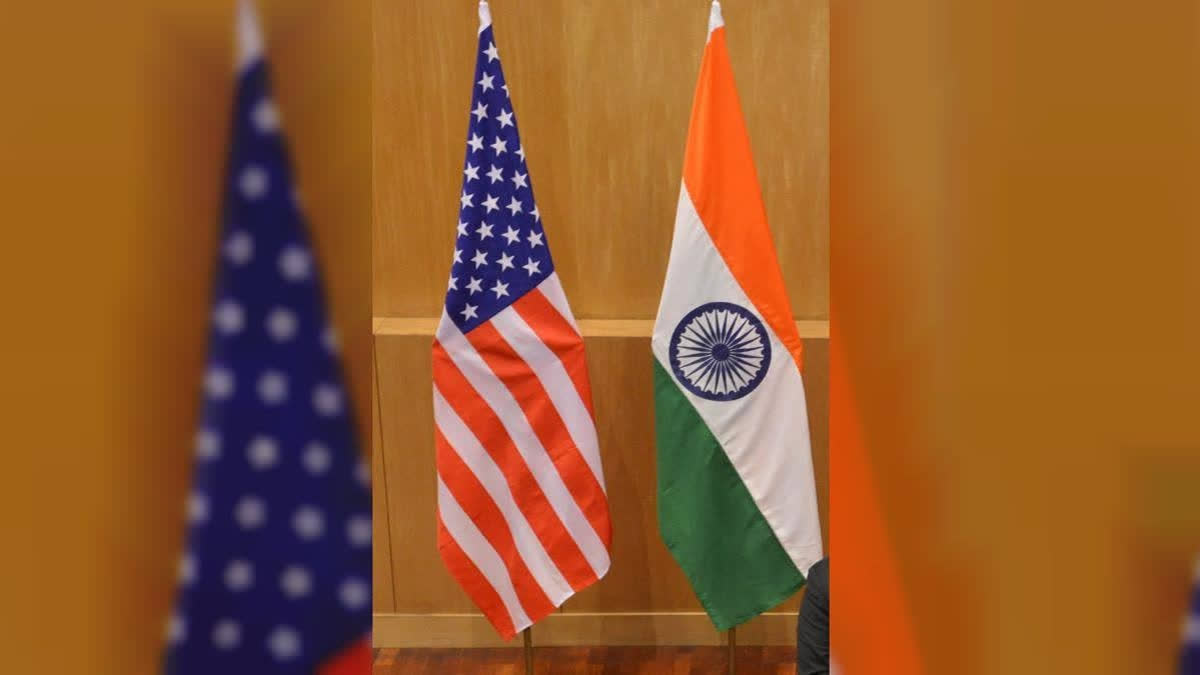Washington: Hindus, who constitute one per cent of the American population and are the third largest religion in the world, have gone unrepresented in the US Commission on International Religious Freedom, in the absence of which the USCIRF has been producing biased, unscientific and one-sided reports on India and Hindus, the head of a top Indian diaspora think-tank body said Friday.
The US Commission on International Religious Freedom (USCIRF) on Friday announced the appointment of three new members -- Maureen Ferguson, Vicky Hartzler, and Asif Mahmood and the reappointments of Stephen Schneck and Eric Ueland to its commission. The term of the previous commissioners -- Abraham Cooper, David Curry, Frederick Davie, Mohamed Magid, Nury Turkel and Frank Wolf ended on May 14.
Congratulations to the appointed member of the USCIRF. Leaders have missed a historic opportunity to appoint representation for diversity and balance in the commission, representation of one of the largest faiths. One in every six people on this earth comes from the Hindu religion.
That is not represented on the commission, which is going to be a big miss in bringing diversity and having a proper balance in the International Religious Freedom report, Khanderao Kand, Chief of Policy and Strategy at Foundation for India and Indian Diaspora Studies (FIIDS) told PTI Friday.
The annual report of the USCIRF on international religious freedom, he said, is biased against India. What we observe in general as well as in this year is that this report is predictably biased against India. It is full of omission and commission. It presents some of the facts, but it does not provide all the facts. It hides many facts, Khanderao said.
It (USCIRF report) actually does not contextualize. It does not give the historical facts or the trends. The report then fits to a certain narrative and that's why it is not factually complete, and it becomes a polemic. It is predictably anti-India. Unfortunately, it is recommending India to be a country of particular concern, he said, adding this is a strange recommendation for a country like India, which is the world's largest democracy.
Right now, the world is witnessing the world's largest democratic exercises in India. It is strange to see the USCIRF is making such a recommendation to India, which is based on diversity and pluralism.
Khanderao charged that the annual report of the USCIRF mostly caters towards certain religions and does not give all perspectives. The report lacks transparency on how experts are selected or evidence is gathered. There is a lack of diversity and as a result of that, the report seems to be polemic and biased, he said, adding the FIIDS' research has found that reports are connected with the vested interests of some of its staffers.
This is unfortunate. If you bring real experts on the board and diversity on the board, then the report would be a balanced one. But otherwise, we are seeing that it is coming up with a report that fits into their narrative. For example, India last year had zero Hindu-Muslim riots. Actually, India is a country with a historically large number of riots. But the report is not talking about the positivity of that. There are a lot of elements which are wrongly presented. So, I think as a result of that the report is actually a biased one, he said.
Urging the authorities to make the USCIRF a truly representative body in terms of religion, he said Hinduism or other religions like Buddhism need to have some representation in the report. Secondly, the report needs to be based on much more diversity from the viewpoints. The reports should be data-driven and there should be transparency.
In its annual report released early this month, the USCIRF recommended the State Department designate 17 nations as Countries of Particular Concern (CPCs) based on their governments engaging in or tolerating particularly severe violations of the right to freedom of religion or belief.
These include 12 that the State Department designated as CPCs in December 2023: Burma, China, Cuba, Eritrea, Iran, Nicaragua, North Korea, Pakistan, Russia, Saudi Arabia, Tajikistan, and Turkmenistanas well as five additional recommendations: Afghanistan, Azerbaijan, India, Nigeria, and Vietnam. India has rejected the contents of the USCIRF report.
Read More
- USCIRF Report Based on Omission & Commission of Facts: Indian Diaspora Body
- Global Meitei Alliance asks USCIRF to verify facts on Manipur crisis
